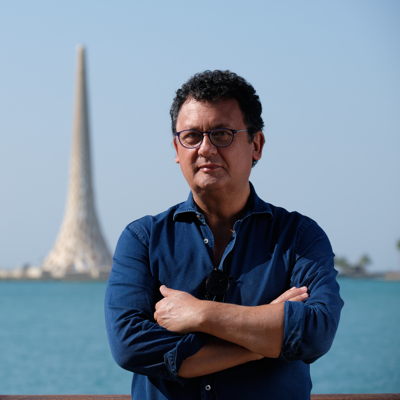
We investigate the epigenetic mechanisms and develop novel applicable approaches to ameliorate tissue regeneration and aging
Program Affiliations
Biography
Professor Valerio Orlando obtained his Ph.D. in Molecular Biology at University La Sapienza in Rome, Italy (1989), followed by a postdoctoral position at the University of Heidelberg, Germany (1991- 1997), where, he laid the foundation for his career in the field of epigenetics. He started his independent career in 1998 at San Raffaele Institute in Milan, Italy. In 2002, he joined Telethon Foundation Italy, where he was founding member of the Dulbecco Telethon Institute (DTI) at IGB CNR Naples and Santa Lucia Foundation Hospital in Rome (2002-2013). He has been a proactive member of the EU- funded Network of Excellence of Epigenetics (Epigenome and Epigenesys Networks of Excellence) and spear-headed the First National Italy’s Flagship project on epigenetics. In 2013, he moved to KAUST, where he founded the KAUST Environmental Epigenetics Program (keep.kaust.edu.sa).
Research Interests
Professor Orlando’s main interest is the investigation of the epigenetic mechanisms governing the dialogue between genome and environment and how those impact and evolve over a lifetime. In particular, his group studies the plastic properties of the genome in response to developmental and environmental cues and the conditions for maintenance of optimal healthy and resilient states. In this context, the lab focuses on the exploration of the emerging role of the repetitive part of the mammalian genome (50% of total). This is made of various classes of DNA sequences repeated tens of thousands of times, relics of ancient viruses that have colonized the mammalian genome and contributed to its evolution. However, recent progress has revealed a pivotal role of the RNAs coming from this portion of the genome in both epigenome dynamics and regulated inflammatory response. This evidence places repetitive and retrotransposons RNA at the center of two fundamental aspects of cell and organism physiology, aspects that when compromised are well-recognized hallmarks of unhealthy states and aging, involving loss of nuclear architecture and chronic inflammation. Therefore, understanding the regulation and targeted pathways that regulate these classes of RNAs is proving to be instrumental for devising highly innovative approaches impacting aging, tissue regeneration, and amelioration of related pathological contexts.
Education Profile
Postdoctoral fellow, Zentrum fuer Molekulare Biologie (ZMBH) University of Heidelberg, Germany,1997
Ph.D. University "La Sapienza", Rome Italy, 1989

